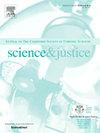法医学项目中的真实评估:一项基于英国的从业者调查。
IF 1.9
4区 医学
Q2 MEDICINE, LEGAL
引用次数: 0
摘要
真实评估在高等教育中变得越来越普遍,通过要求学生完成现实的工作任务,可以在法医学课程中实现这一目标。我们认为,让学生为法医学工作做好准备也意味着让他们为他们将经历的持续培训和评估做好准备。通过对60名从业人员的在线问卷调查,我们调查了法医学工作场所用于评估理论知识和实践技能的评估方法。超过一半的参与者(52%)来自英国。最常见的实践技能评估形式是另一位科学家的观察(n = 44,76 %的参与者报告),其次是能力测试(n = 27,47 %的参与者报告)。最常见的理论知识评估形式是作为实践技能或能力测试的一部分(n = 40, 69%的参与者),其次是实践陈述或报告(n = 32, 55%的参与者)。然后,我们审核了我们的法医学(荣誉)理学士课程的评估制度,以确定任何差距,并将主要问题确定为缺乏观察能力测试。我们鼓励那些开展法医科学项目的机构进行类似的审计,并考虑解决任何差距,同时认识到并非所有评估都必须是真实的,我们的毕业生可能会进入一系列职业,因此需要可转移的技能。本文章由计算机程序翻译,如有差异,请以英文原文为准。
Authentic assessment in forensic science programmes: A UK-based survey of practitioners
Authentic assessment is becoming increasingly common in higher education, and it can be achieved in forensic science programmes by asking students to complete realistic workplace tasks. We argue that preparing students for the forensic science workplace also means preparing them for the ongoing training and assessment they will experience. Using an online questionnaire of 60 practitioners, we surveyed the assessment methods that are used in forensic science workplaces to assess theoretical knowledge and practical skills. Just over half of the participants (52 %) were from the UK. The most common form of assessment for practical skills was observation by another scientist (reported by n = 44, 76 % of participants), followed by competency testing (reported by n = 27, 47 % of participants). The most common form of assessment for theoretical knowledge was as part of practical skills or competency testing (n = 40, 69 % of participants), followed by practice statement(s) or report(s) (n = 32, 55 % of participants). We then audited the assessment regime for our BSc (Hons) Forensic Science programme to identify any gaps, and established the main one as a lack of observed competency testing. We encourage those running forensic science programmes to conduct a similar audit and consider addressing any gaps, whilst being cognisant that not all assessments have to be authentic, and that our graduates may enter a range of careers, so require transferable skills.
求助全文
通过发布文献求助,成功后即可免费获取论文全文。
去求助
来源期刊

Science & Justice
医学-病理学
CiteScore
4.20
自引率
15.80%
发文量
98
审稿时长
81 days
期刊介绍:
Science & Justice provides a forum to promote communication and publication of original articles, reviews and correspondence on subjects that spark debates within the Forensic Science Community and the criminal justice sector. The journal provides a medium whereby all aspects of applying science to legal proceedings can be debated and progressed. Science & Justice is published six times a year, and will be of interest primarily to practising forensic scientists and their colleagues in related fields. It is chiefly concerned with the publication of formal scientific papers, in keeping with its international learned status, but will not accept any article describing experimentation on animals which does not meet strict ethical standards.
Promote communication and informed debate within the Forensic Science Community and the criminal justice sector.
To promote the publication of learned and original research findings from all areas of the forensic sciences and by so doing to advance the profession.
To promote the publication of case based material by way of case reviews.
To promote the publication of conference proceedings which are of interest to the forensic science community.
To provide a medium whereby all aspects of applying science to legal proceedings can be debated and progressed.
To appeal to all those with an interest in the forensic sciences.
 求助内容:
求助内容: 应助结果提醒方式:
应助结果提醒方式:


